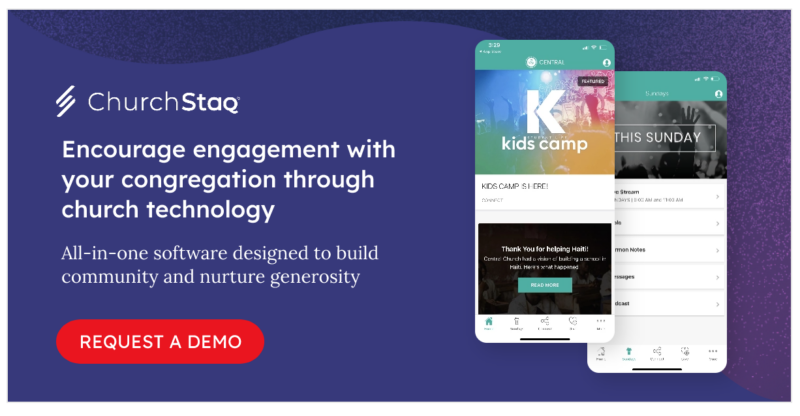Tips for Making the Most of Networking at a Church Conference
Your Conference Is an Investment
No doubt about it. Attending any conference will be an investment. Between registration fees, travel costs, food, and lodging, you’ll have to put some money behind your decision to level up your ministry in 2018. Plus, you’ll be out of the office for a few days, which often means doing a little extra work before and after the trip.
That’s why you better make sure you make the most of the conference. Sure, that starts with choosing the right conference—one that is designed to help you engage growth areas in your ministry. Plus, you want to pick a conference with speakers who will stretch you.
The problem is that’s where so many of us stop when we’re trying to make the most of a ministry conference we’re attending. We focus mostly on the conference content. That’s important, but you may be leaving the most important conference element off the table.
Networking.
Let’s face it: On a typical week even the busiest of church leaders doesn’t get many opportunities to rub shoulders with people ministering in other places. Maybe you attend a denominational meeting or a local ministers’ association group, but those days are rare.
Networking Matters
You need opportunities to connect with other church leaders, both inside and outside of your local church. A few years back, The Harvard Business Review described three different kinds of networks leaders need: Operational networks (between co-workers at a particular organization), personal (across organizations, for personal and professional development), and strategic (both internal and external, to figure out future priorities).
What does that have to do with church leaders? Effective church leaders know that stepping outside of your church staff is a critical component of your growth as a leader.
Conferences, like the upcoming Summit, give you a rare opportunity to engage people you wouldn’t normally, people from different parts of the country, in different denominational backgrounds, who do church in completely different ways. We all need those opportunities.
But how do you make the most of them?
You’re intentional about networking. You don’t just show up on the first day of the conference ready to meet new people. You get prepared weeks, if not months, ahead of time.
Here are a few ideas to get you started:
1. Thoroughly review the agenda
The first thing you want to do is get familiar with what’s going to happen during the conference. Ideally, this happens before you register. If not, do it soon afterwards. You want to make sure you understand what the general themes and main speakers will be. Once you do this, you can start ruminating on the topics and prepare to engage others.
2. Follow presenters and attendees on social media
As soon as you can, look for anyone involved in the conference on social media and start following them. If you can identify a conference hashtag, use that to help you find people who are talking about the conference. Consider creating a Twitter list out of the people you find and use it at least every few days to review what people are tweeting. Habitually engage the content of these people. Ask questions of them. Retweet them. Get on their radar. Do something similar on Facebook. If the conference has a Facebook page, like this one for Summit, make sure you like the page. It’s usually a great place to learn more about the conference. Most importantly, regularly engage with the topics discussed on the page so other attendees and conference organizers can get familiar with your name, interests, and expertise.
3. Make sure you have plenty of business cards
Business cards allow you to easily trade contact information with people you’re meeting at the conference. You don’t want to run out while you’re at the conference, so bring a bunch. If possible, do something special to make sure your card stands out in the stack people will likely take home.
4. Load Evernote on your smartphone
Evernote has a great feature that allows you to scan business cards and automatically upload the contact information into your contacts. A good networker will make it his or her aim to gather as many business cards as possible. You don’t want to spend all your post-conference time loading that info on your own. Use that time you save to email people you met, remind them who you are, and make sure they have your contact information on file.
5. Prepare some questions ahead of time
As you research who will be presenting and who will be attending the conference, you’ll likely have a list of church leaders you’d like to particularly get to know during the event. Be sure to write down a few questions on a notecard you want to ask once you’re together. You don’t need many, but be prepared to ask a few targeted questions that will help you deal with an issue that’s impacting your ministry. You may not get much time with the person. Preparing some questions ahead of time to get you started will help you make the most of the time you have.
Your conference time matters. Be prepared to make the most of your investment. You’ll be glad you did.
Featured Content
You May Also Like

